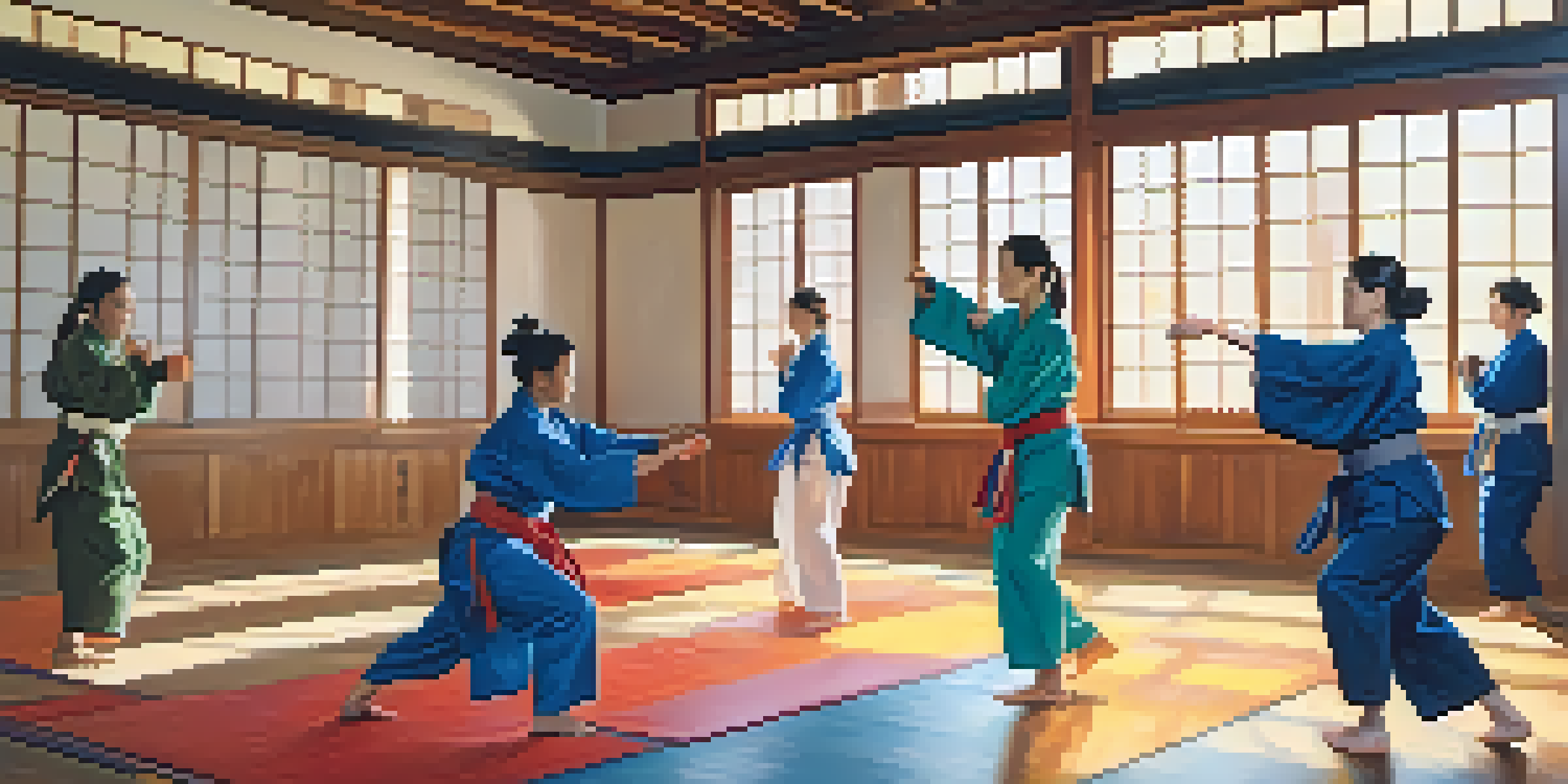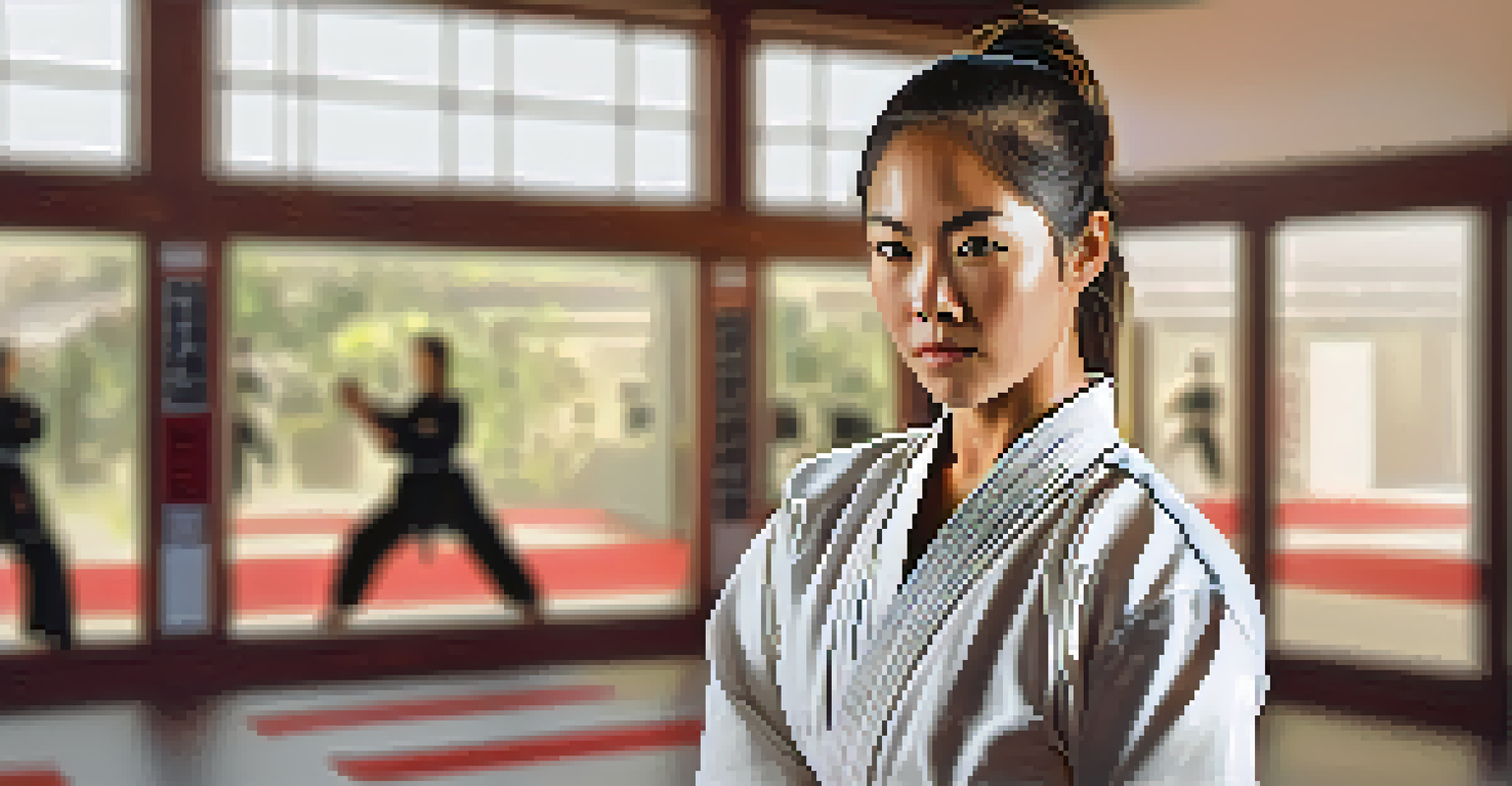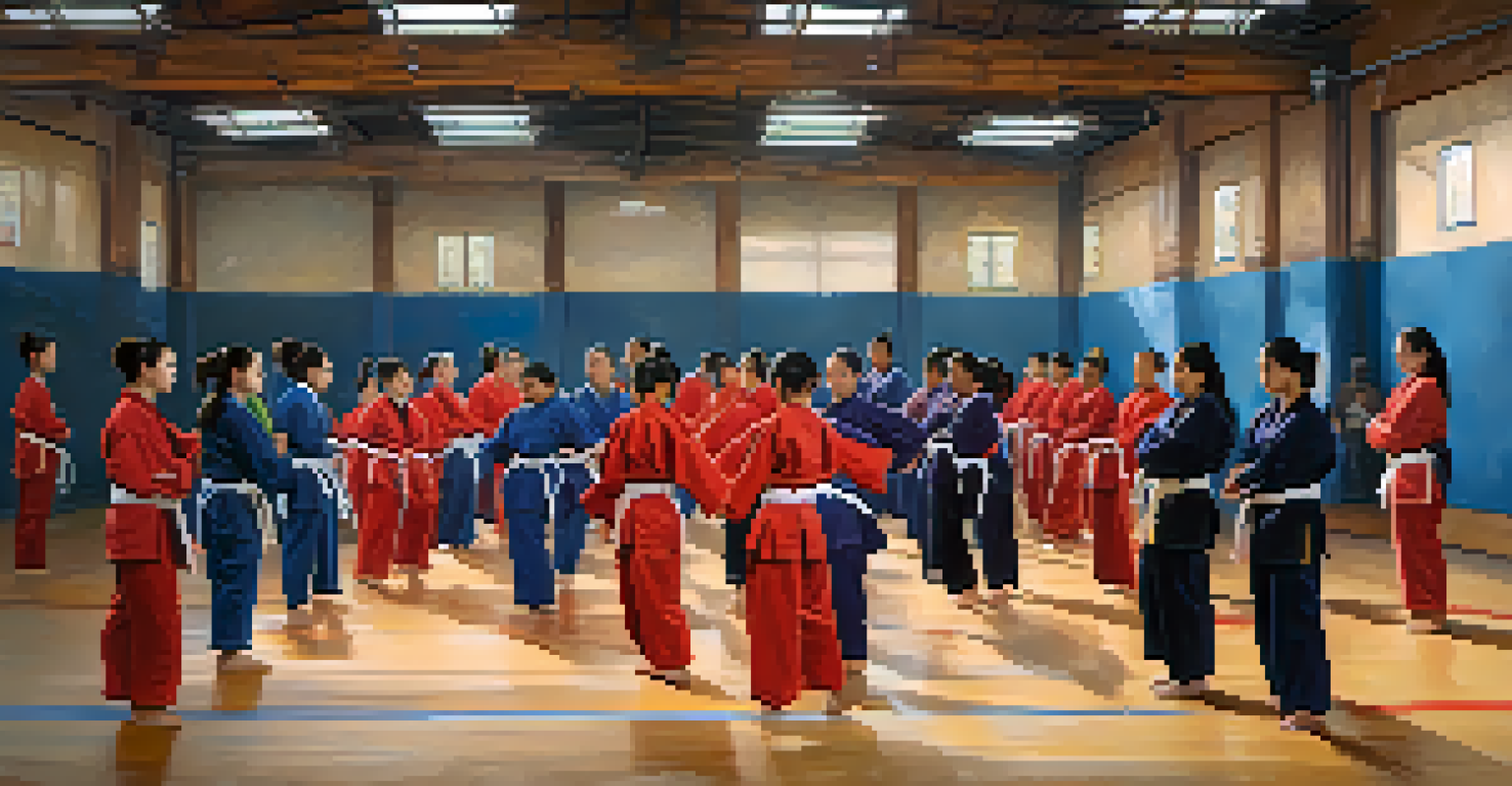Women in Martial Arts: Empowerment and Gender Identity

The Rise of Women in Martial Arts
Historically, martial arts have been male-dominated, but that landscape is changing. More women are stepping onto the mats, breaking down barriers and challenging stereotypes. This shift not only empowers individual women but also inspires a new generation to embrace martial arts.
The best way to predict the future is to create it.
Organizations and schools are increasingly recognizing the importance of inclusivity, creating programs specifically for women. These initiatives provide safe spaces where women can learn, grow, and gain confidence. With more female role models in the spotlight, the narrative around women in martial arts is evolving.
As more women participate, they not only enhance their physical skills but also cultivate mental resilience. The martial arts journey is about more than just techniques; it’s about personal growth and empowerment, proving that women can excel in any field they choose.
Empowerment Through Self-Defense Training
Self-defense is a critical component of martial arts that resonates deeply with women. It’s not just about learning to fight; it’s about taking control and feeling empowered in one's own body. Women report feeling more confident and secure after completing self-defense training.

This empowerment extends beyond physical abilities; it significantly impacts mental health. Many women find that practicing self-defense helps them manage anxiety and boosts their overall self-esteem. By mastering techniques, they also learn to trust their instincts and make quick decisions.
Women are breaking barriers in martial arts
More women are participating in martial arts, challenging stereotypes and inspiring future generations.
Moreover, self-defense classes foster a sense of community among participants. Women often bond over shared experiences and encourage one another, creating a supportive environment that enhances their confidence and resilience.
Martial Arts as a Tool for Gender Identity Exploration
Martial arts offer a unique platform for exploring and expressing gender identity. For many women, participating in these disciplines allows them to challenge traditional gender roles and expectations. They can embody strength, agility, and power, redefining what it means to be feminine.
Strength does not come from physical capacity. It comes from an indomitable will.
This exploration is particularly significant for those who may not fit into conventional gender norms. Martial arts provide an avenue for individuals to express themselves authentically, embracing their unique identities in a supportive environment. It’s a space where everyone is encouraged to be their true selves.
As the community becomes more diverse, the acceptance and celebration of various gender identities can flourish. This inclusivity enriches the martial arts experience, fostering understanding and camaraderie among practitioners of all backgrounds.
The Impact of Female Role Models in Martial Arts
Female role models in martial arts play a vital role in inspiring others to follow their paths. Icons like Ronda Rousey and Michelle Waterson have broken barriers and showcased that women can achieve greatness in combat sports. Their success stories motivate young girls to pursue martial arts.
These role models also help dispel myths about women's capabilities in martial arts. By showcasing their skill and strength, they challenge stereotypes that suggest women are less capable. This visibility is crucial for encouraging more women to join the martial arts community.
Self-defense training empowers women
Self-defense classes boost women's confidence and mental health while fostering a supportive community.
Additionally, female instructors contribute to this empowerment by serving as mentors. They provide guidance and support, helping aspiring martial artists navigate their journeys while instilling confidence and resilience.
Building Community and Support Networks
Martial arts foster a sense of community that is particularly beneficial for women. Many dojos and training facilities create inclusive environments where women can share experiences and support one another. This camaraderie helps build lasting friendships and networks.
In these communities, women often find encouragement to push beyond their limits. They share training tips, celebrate each other’s achievements, and lift each other up during challenges. This support system is invaluable in a sport that can sometimes be physically and mentally demanding.
Moreover, events like women-only tournaments and seminars further strengthen these bonds. They provide opportunities for women to compete, learn, and grow together, reinforcing the idea that martial arts is a collaborative journey.
Overcoming Challenges in Martial Arts
Despite the progress, women still face challenges in martial arts. These can include stereotypes, unequal opportunities, and sometimes, even harassment. Acknowledging these issues is the first step toward creating a more equitable environment.
Women often have to work harder to prove themselves, but this perseverance can lead to tremendous personal growth. Overcoming these challenges not only builds resilience but also fosters a sense of empowerment. Each hurdle conquered is a testament to their strength and determination.
Role models inspire female martial artists
Prominent female figures in martial arts motivate others and help dispel myths about women's capabilities.
Creating a dialogue around these challenges is essential for fostering change. By sharing experiences and advocating for equality, the martial arts community can continue to evolve, making the sport more accessible and inclusive for everyone.
The Future of Women in Martial Arts
The future looks bright for women in martial arts, with increasing participation and visibility. As more women take up the practice, the community becomes richer and more diverse. This shift bodes well for the evolution of martial arts as a whole.
Advocacy for women's rights and representation continues to grow, influencing how martial arts are perceived and practiced. With more women in leadership roles within martial arts organizations, the push for inclusivity is becoming more pronounced.

Ultimately, the journey of women in martial arts is one of empowerment, identity, and community. As they continue to break barriers, their influence will inspire future generations to embrace martial arts as a path to strength and self-discovery.